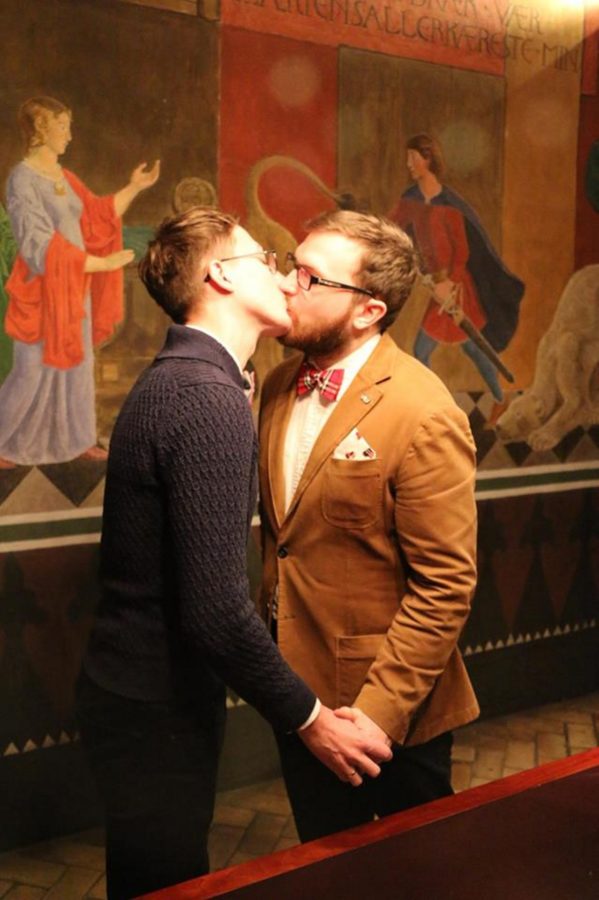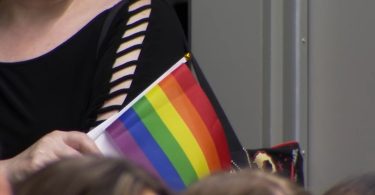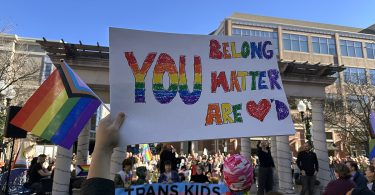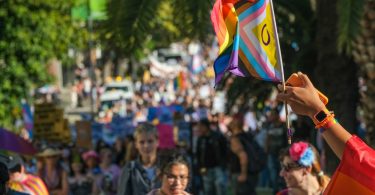A Russian married gay couple who were the first to be legally recognised in the country has had charges brought against them.
The couple, Eugene Wojciechowski and Pavel Stotsko tied the knot on January 4 in Copenhagen, Denmark, in matching bow-ties.
When they returned to Russia, they hoped – but did not expect – that their union would be seen as legal in their home country.
To their shock and delight, a government employee in Moscow stamped their passports with official confirmation of the marriage – and it took just five minutes.
But the couple has now been charged with “intentional damage to passports or negligence”.
The press office for the Moscow Department of the Interior has said that the men are facing the charges.
Interfax reports that the Department said in a statement: “With respect to men who initiated marking in their passports of citizens of the Russian Federation not provided for by the current legislation, cases were brought about administrative offences provided for in Article 19.16 of the Administrative Code of the Russian Federation.
“Article 19.16 of the Administrative Code on ‘deliberate damage to documents’ entails a warning or an administrative fine in the amount of 100 to 300 rubles.”
According to Russian law, weddings conducted abroad are legitimate if there is nothing “preventing the conclusion of marriage specified in Article 14 of the Family Code.”
This rule appeared to contain a loophole which the newlyweds have taken advantage of.
It states that marriages cannot be approved if they are between close relatives or adoptive parents and adopted children, or if one spouse is already married or unable to make a decision for themselves because they are severely mentally ill.
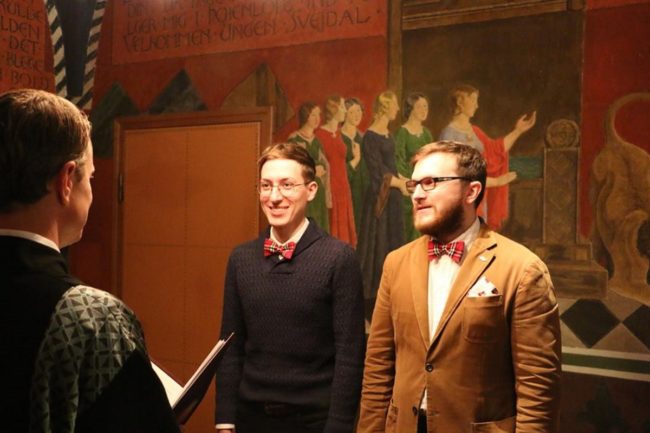
Nothing in the law states that same-sex unions constitute a disqualifying factor.
There is a line saying that for the marriage to be recognised, “the mutual voluntary consent of the man and woman entering in marriage” is required.
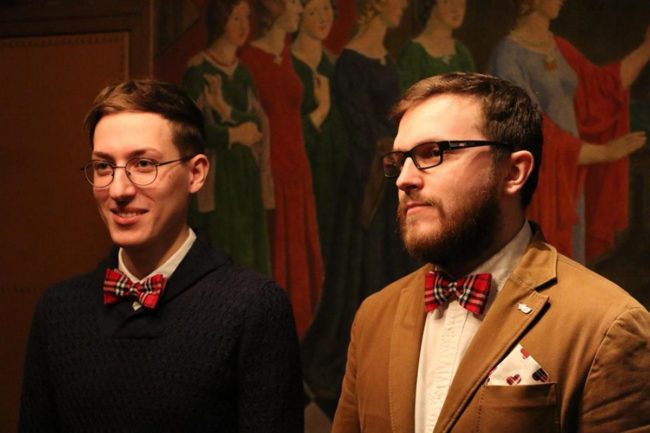
But when TV Rain questioned the Moscow office where Wojciechowski and Stotsko had their marriage approved, the press officer was unable to clear up the point.
“Your question would make sense if the Russian Federation’s Family Code used a different formulation,” they said.
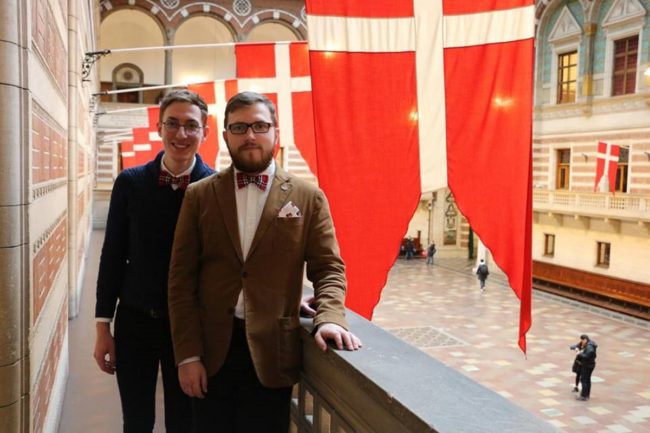
“For example, ‘voluntary consent of persons entering into marriage.’
“Further discussion of your issue I think is inexpedient,” they concluded, without clarifying much of anything.
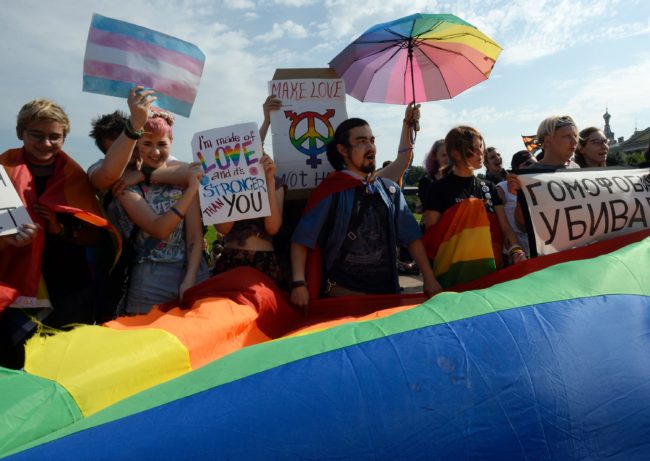
In 2014, a marriage between a cisgender woman and transgender woman was recognised in St. Petersburg.
However, this was only because the trans woman had not been able to change her gender identity on official documents, meaning the government saw the marriage as heterosexual.
Last year, it was found that hate crimes against LGBT people have doubled since Russia created a law banning gay “propaganda”.
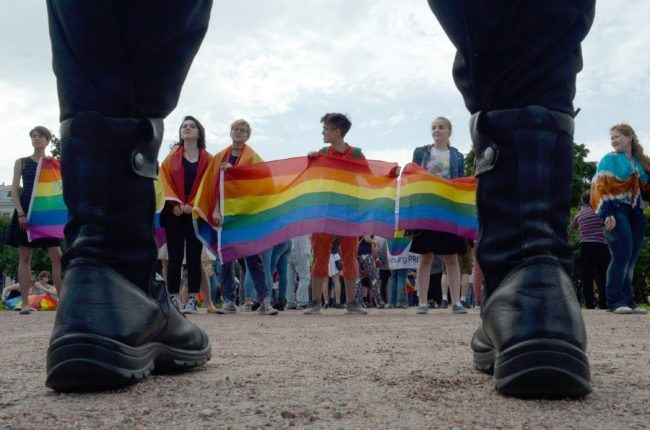
The 2013 legislation, which prohibits “propaganda of non-traditional sexual relationships” towards minors, has been condemned by the European Court of Human Rights.
The European judges found that the law “reinforced stigma and prejudice and encouraged homophobia”.
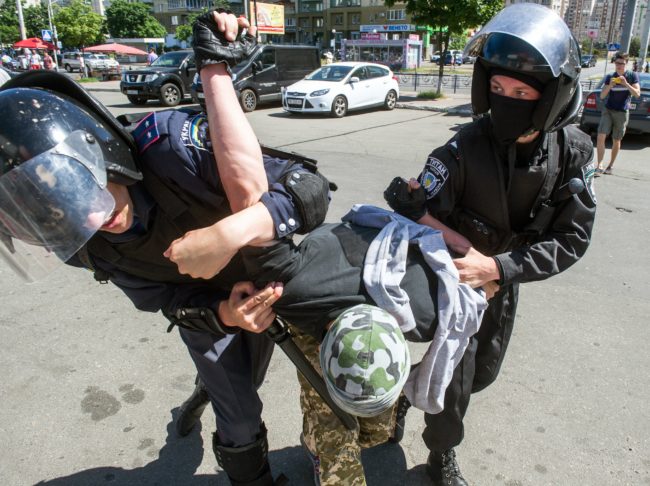
The law also bans people from sharing “distorted ideas about the equal social value of traditional and non-traditional sexual relationships”.
It has been widely abused by Vladimir Putin’s government to clamp down on the LGBT rights movement as a whole.

